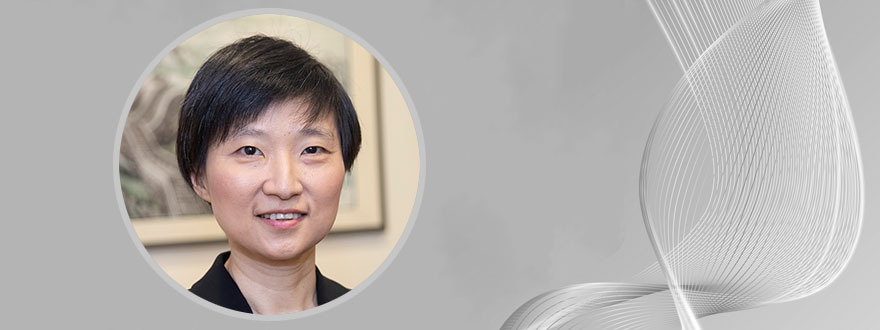Award: Pioneering work in imaging techniques leads to Taylor Prize

By Communications
With her pioneering work in super-resolution imaging and genome-scale imaging techniques, Xiaowei Zhuang, PhD, is making great strides in the area of molecular imaging of the brain.
Zhuang is the recipient of the 2022 J. Allyn Taylor International Prize in Medicine, presented by the Robarts Research Institute, at the Schulich School of Medicine & Dentistry.
“It’s a great honor to receive the J. Allyn Taylor International Prize,” said Zhuang. “It means a lot to me and my lab members. The Taylor Prize has a great tradition of honoring scientists with groundbreaking achievements, and I feel truly honored to join this amazing group of Taylor Prize laureates.”
“The Taylor Prize has a great tradition of honoring scientists with groundbreaking achievements, and I feel truly honored to join this amazing group of Taylor Prize laureates.” — Xiaowei Zhuang, PhD
2022 recipient: J. Allyn Taylor International Prize in Medicine
Zhuang’s work in advanced imaging technologies has led to the development of a super-resolution imaging method, called STORM, which is used by researchers worldwide. Using STORM, she discovered previously unknown molecular structures in neurons and provided molecular views of many cellular structures with unprecedented resolution.
Zhuang also invented a single-cell transcriptome and genome imaging method, MERFISH, which has enabled spatially resolved single-cell genomics. This has in turn allowed in situ identification of molecularly distinct cell types and the mapping of their spatial organization and functions in tissues. Using MERFISH, Zhuang created molecularly defined, spatially resolved, and functionally annotated cell atlases of the brain. Her discoveries have also extended to 3D genome organization and gene regulation in cells.
“Dr. Zhuang’s inspirational work now permits researchers to see cellular structures like never before. This technology is poised to transform research and understanding of many neurological disorders, including neurodegenerative diseases like Alzheimer’s disease,” said Robert Bartha, PhD, Professor, Medical Biophysics, and Acting Director, Strategy and Scientific Integration at Robarts Research Institute.
Zhuang is an investigator at the Howard Hughes Medical Institute and the David B. Arnold Professor of Science at Harvard University.
She received her BSc in physics from the University of Science and Technology of China, her PhD in physics from University of California at Berkeley, and her postdoctoral training in biophysics at Stanford University. She joined the faculty of Harvard University in 2001 and became a Howard Hughes Medical Institute investigator in 2005.
The J. Allyn Taylor International Prize in Medicine is named after the founding Chair of the Board at Robarts and includes a cash prize of $40,000 and a medal bearing the likeness of J. Allyn Taylor. The award is generously supported by the Stiller Foundation and the family of the late J. Allyn Taylor.








